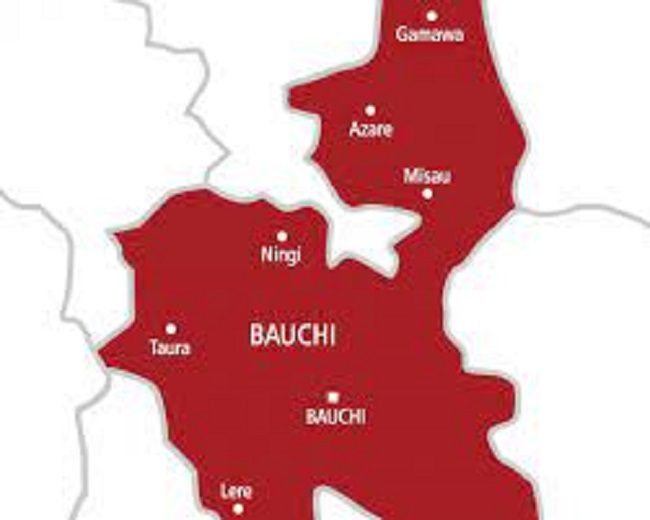Bauchi State Accountability Mechanism for Maternal, Newborn and Child Health (BaSAM), a CSO concerned with issues of health financing in Bauchi state has declared that government spending on health is inadequate as the state has an increasing population with over 70% of the population Iiving below the poverty line.
It added that the financial risk protection data shows less than 5% of the population has financial risk protection w
lies that health expenditure is majorly through household out-of-pocket expenses and this has the potential to push households into poverty.
The assertion is contained in a Bauchi State Universal Health Coverage (UHC) Scorecard presented to the public on Tuesday at the Command Guests House, Bauchi.
According to BaSAM, these indicators measure how much funding is raised for health and reflect government commitment stating that “Total healthcare spending would increase to a population. Estimated investment needs to facilitate the delivery of a core set of healthcare services.
“This makes it imperative for the government to ensure the release of equity funds for the enrollment of
households into the financial risk protection scheme of the Bauchi State Health Contributory Scheme.”
“The quality improvement indication shows how health facilities are using the developed annual quality improvement plans to improve service delivery.”
BaSAM explained that it involves a review of identified gaps within the health facility, analysis and provision, with the inclusion of the change idea strategies, and associated costing input in the quarterly business plan.
According to the CSO, “The indicators provide a clearer pathway for the documentation of the quality improvement process within the facility improvement template for the purpose of monitoring and measuring (baseline and current level of performance, the performance of the health facilities to implement their quality improvement plans has resulted in significant improvement in the RMNCAH-NM quality of care processes.”
On achieving Universal Health Coverage (UHC), the Bauchi State Accountability Mechanism for Maternal Newborn and Child Health (BaSAM), a coalition of civil society organizations, government representatives and the media stated it has been developing scorecards over the years with support from Options E4A, MamaYe Project.
But recently, the CSO thought it wise to harmonize the scorecards into one that will capture all the healthcare components into one document for ease of use.
In continuation of its advocacy for improved health care services in Bauchi state, BaSAM, with technical support from USAID funded Integrated Health Program (USAID IHP), previously produced the first series of the Bauchi Universal Health Coverage scorecard for 2022 and disseminated it in May 2023.
Universal Health Coverage (UHC) is about ensuring that people have access to the health care they need without suffering financial hardship its targets by 2030 will eliminate preventable maternal and child deaths, strengthen resilience to public health emergencies, reduce financial hardship linked to illness, and strengthen the foundations for long-term economic growth.
On service delivery, it stated that the service delivery indications show service coverage as the state is faced with an increase in Maternal and child mortality even though there is a general increase in service delivery data from 2021 to 2022.
The quality of ANC services still needs to improve as ANC 4, use of IPT and facility delivery is still below acceptable limits.
A significant improvement is therefore needed for the achievement of the 2030 SDG target for Maternal mortality which is to reduce maternal death to less than 70/100,000 live births per year.
The child health services still show less integration with other PHC Services and this has implications for the SDG target for under-five child mortality rate to less than 25 deaths per 1000 while neo-natal mortality to 12 deaths per 1000 live births.
The density of health workers is a good proxy for a state’s capacity to deliver health services. The Bauchi state density of health workers is below the SDG Index threshold (4.45 physicians, nurses and midwives per 1000 population) and therefore has implications for the quality of services delivered in our PHCs.
BaSAM, however, commended the Bauchi State Government for achieving the 15% allocation to the Health Sector in addition to the construction and renovation of various health facilities across the State.
It, therefore, requested the Bauchi State Primary Health Care Development Agency should make adequate budgetary provisions to improve the availability of Child spacing commodities.
Also, the Bauchi State Government should make timely and adequate releases of budgetary allocations to the health sector (especially FP and Equity funds for enrollment of vulnerable populations).
It then stressed that the data reported in the document recognised the quality of data reported to the DHIS 2 platform and some data may be under or over-reported.
“Further analysis and review of the data may provide more information on the situation Health financing data represent only administrative due to the unavailability of health account data.
“The scorecard was developed and printed with the support of the U.S. Agency for International Development (USAID) Integrated Health Program, Nigeria on behalf of the American people. The information in this document does not necessarily reflect the views of the U.S. Government.”
READ ALSO FROM NIGERIAN TRIBUNE






